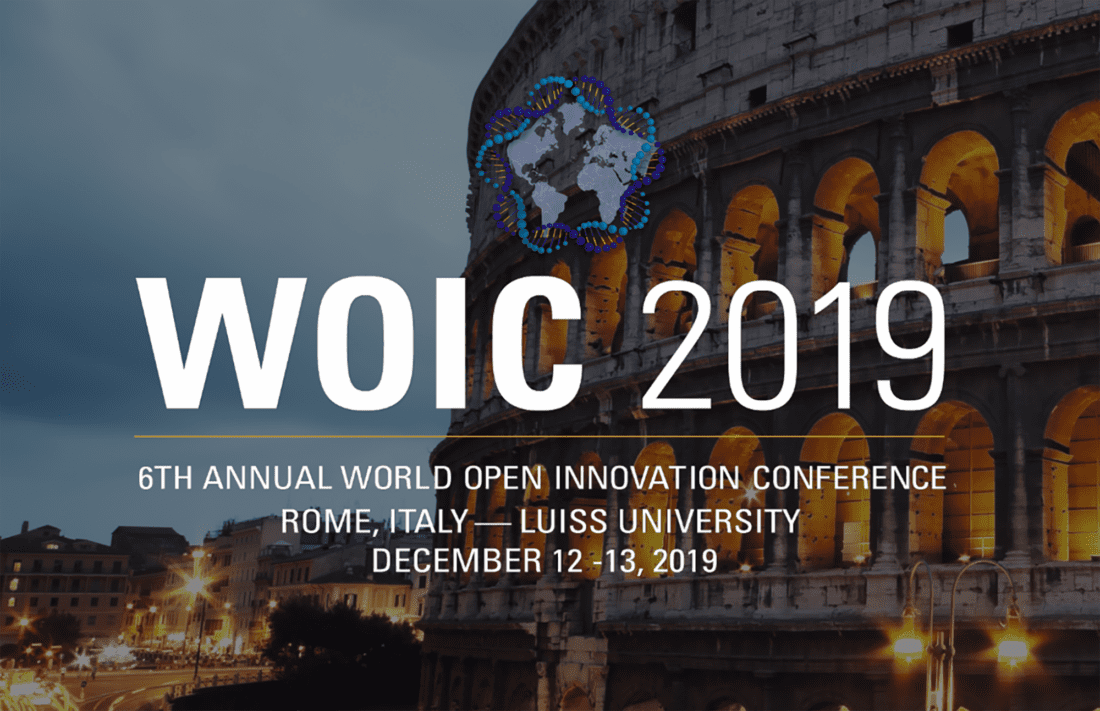 How societal challenges can provide organizations with unexpected growth opportunities will be the theme as innovation leaders gather for the sixth annual World Open Innovation Conference in Rome Dec. 12-13.
How societal challenges can provide organizations with unexpected growth opportunities will be the theme as innovation leaders gather for the sixth annual World Open Innovation Conference in Rome Dec. 12-13.
Organized by the Garwood Center for Corporate Innovation, the conference, with an expected attendance of more than 200, will for the first time be held at Rome’s Libera Università Internazionale degli Studi Sociali Guido Carli, or LUISS for short. With the theme “Opening Up for Managing Business and Societal Challenges,” the event will include presentations on topics ranging from conceptualizing an open innovation ecosystem to implementing new ideas.
“Useful knowledge has spread so far so fast that no single organization can or should try to do everything on its own,” says Adj. Prof. Henry Chesbrough, conference chair and author of the new book Open Innovation Results: Going Beyond the Hype and Getting Down to Business (available Nov. 28). “The pace of growth in ideas is accelerating, making it even more imperative to open up to participate effectively in these flows of knowledge,” he says.
Francesco Starace, chief executive of Italian energy company Enel Group, will discuss developments in green and renewable energy as the keynote speaker. Other speakers include University of Toronto Professor Anita McGahan and University of Surrey Professor Annabelle Gawer, as well as other leaders in the energy and technology industries.
Conference activities include presentations of 60 papers, 15 posters, and five industry challenges, in which companies test open innovation’s impacts on real-world problems. A panel of a group of energy firms will discuss the companies’ combined activities and resources to invest in energy-related startup firms.
Chesbrough in the early 2000’s coined the term “open innovation,” which centers on the idea that organizations should open themselves to knowledge flows. Companies that pursue open innovation don’t rely on only their own internal expertise, but buy or license technology and business processes from others. This approach speeds up product cycles, spreads risks and rewards with others, and increases product differentiation, Chesbrough says. At the same time, companies that license or sell inventions that they’re not using can generate additional revenue, spread out fixed costs, and validate ideas and technologies that could have been overlooked, he adds.
Chesbrough’s early research concentrated on the technology sector’s pursuit of open innovation. Since then, other industries, including the automotive, chemical, consumer products, and financial services industries have followed. Similarly, some governments and nonprofits have also benefited from open innovation, finding ideas from collaborative partnerships and crowdsourcing to benefit health-care systems and city planning.
“No one organization has a monopoly on great ideas,” says Chesbrough.
In his new book, Chesbrough examines some of the challenges companies face in seeking innovation from others, including cultural resistance to pursuing ideas invented elsewhere and ingrained businesses practices that discourage collaboration. The book also links innovation at companies to national economic growth. All conference attendees will receive a copy of the book.